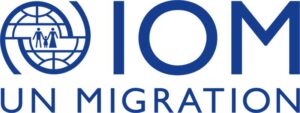Piloting sustainable financing solutions to invest in ecosystem-based adaptation (EbA) for disaster and conflict risk reduction in Iraq
Project Information
For generations, Qushtapa in Erbil, known locally as “Bird Hill,” a name believed to originate from the Turkman language dating back to the Ottoman period, has been a place where people and nature have crossed paths for centuries. Its rolling plains once supported thriving farmlands, migrating flocks tracing ancient routes across the sky, and traditional Kareez water channels quietly carrying water beneath the earth. But over the past three decades, with climate change impacts accelerating in recent years, this balance has steadily eroded. Waves of displaced people – from Iranian refugees to Kurdish IDPs and, more recently, Syrian refugee families – have sought safety in Qushtapa, settling in a landscape already strained by drought, erratic rainfall, and declining groundwater.
Today, the signs of environmental stress are unmistakable: rainfed agriculture has become unreliable, livestock rangelands have thinned, and the old Kareez systems, once symbols of resilience, ingenuity and stability, have dried, and eventually buried. The migratory birds that gave Qushtapa its name now find fewer resting places as vegetation shrink and all springs dried.
Yet this story is not only one of loss, but also one of renewal. This project aims to help Qushtapa restore its natural strength by introducing ecosystem-based adaptation (EbA) solutions that reconnect communities to the environment that sustains them. Through scientific assessments, community engagement, and the design of sustainable financing models, the project will support communities in adopting regenerative, nature-based practices that restore ecosystems, improve land and water resources, and enhance livelihood security to reduce disaster risks and climate-related pressures to migrate.
By reviving local ecosystems, strengthening livelihoods, and exploring new, sustainable financing pathways, the project will help Qushtapa reclaim its identity as a resilient landscape – one where people, nature, and migratory birds can once again thrive together.

